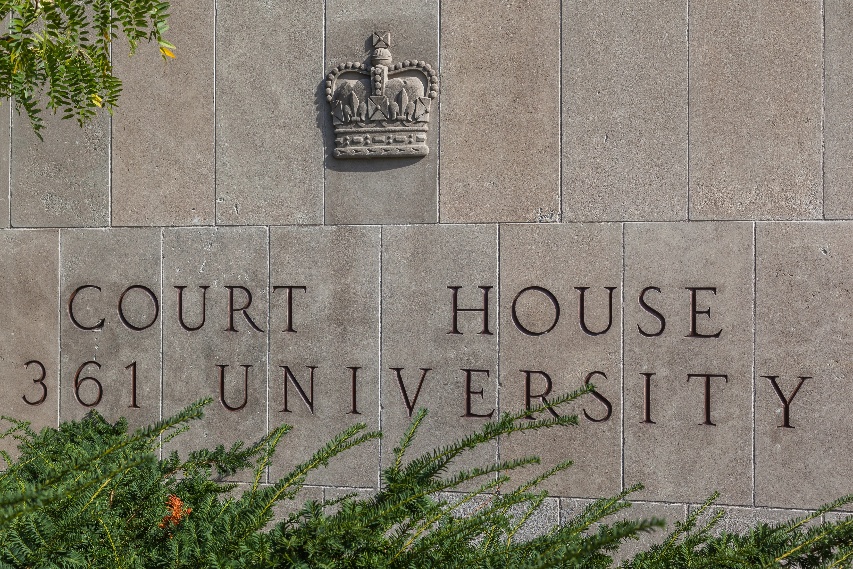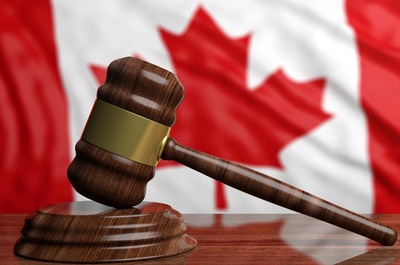Getting arrested can be upsetting and confusing. It can seem as though the police have the ultimate control over the situation, and that you yourself are powerless. However, you have constitutionally guaranteed rights when you are arrested; knowing those rights and taking smart, legally correct steps lets you take some of your power back.
If you’re wondering what to do if arrested in Toronto, this guide will help you protect yourself and get the best outcomes possible.
1. Understand Your Rights Under the Charter
The Canadian Charter of Rights and Freedoms (the “Charter”) guarantees the following:
- Right to be informed of reason for your arrest (Charter Section 10(a))
- Right to legal counsel (Charter Section 10(b))
- Right to be informed of these rights
- Right to reasonable bail (Charter Section 11(e))
- Protection against unreasonable search and seizure (Charter Section 8)
- Right to an interpreter if needed
Toronto police must read these rights upon arrest, and a rights card should be provided in your language.
Ideally, every citizen would be aware of these rights and how to protect them in real time, but this is much easier said than done. If you believe any of these rights were violated or you have questions about them, discuss these issues with your lawyer as soon as possible.
2. Stay Calm and Cooperative
If you get arrested, you’ll probably feel angry and violated. It’s essential not to act on those feelings by arguing with the officer or resisting arrest. Doing that will only make things worse, lead to additional charges, and give the police evidence that can be used against you later on. Keep in mind that cooperation is not an admission of guilt; you will have your opportunity to tell your story once you have a lawyer.
Keep your hands visible to the police at all times and avoid sudden movements. A key element of what to do if arrested is to follow instructions and remain as calm as possible. Take mental notes of everything that happens, particularly any excessive force or police actions that may have violated your rights.
3. Remain Silent
Just as important as what to do when you’re arrested is what not to do. People often ask, “Do I have to talk to police if I’m arrested?” You have to give them basic identifying information such as your name and date of birth, but beyond that, be polite and firm. Say, “I am exercising my right to remain silent.”
The police might pressure you to keep talking by using such tactics as suggesting the discussion is not formal (“we’re just talking here”), playing good cop / bad cop, or implying that silence makes you look guilty (“If you’ve got nothing to hide, why not talk?”). It’s not illegal for the police to use these approaches, nor is it unusual.
It’s important to recognize that you can make things worse for yourself when you offer the police evidence or attempt to declare your innocence. Do not speak to the police before talking to your lawyer.
4. Ask to Speak to a Lawyer
A common question about what to do if you’re arrested is “Can I get a lawyer right away if I’m arrested?”
You have the legal right to counsel when you’re placed under arrest, and to speak to them in private. As soon as possible, clearly state: “I want to speak to a lawyer.” You can contact a lawyer of your choice or request Legal Aid Ontario duty counsel. The police are obligated to provide that opportunity without delay.
5. Follow your Lawyer’s Instructions
Your lawyer is your best advisor when it comes to what to do if arrested. Follow their instructions closely, even if you believe you have a better plan; your lawyer has a bigger picture of the situation and has your ultimate outcomes in mind. Ask for clarification if there’s anything you don’t understand.
6. Prepare for Your Bail Hearing
The next step in what to do if you’re arrested is to prepare for your bail hearing. A bail hearing is when the court decides if you’ll be released and under what conditions. Several outcomes are possible:
Release on Bail
The judge or justice of the peace could agree to release you until your trial. There are normally conditions placed on the release, such as the requirement to stay at a certain address, a curfew, restrictions on whom you can interact with, and refraining from alcohol or drug use.
Release with a Surety
A surety is someone who agrees to supervise you and ensure you follow bail conditions. The person acting as surety has to be approved by the court, and must pledge a sum of money, which they could lose if you violate your conditions.
Detention
If your bail is denied, you will stay in custody until your trial or until a bail review is successful. This can happen if you’re considered a flight risk, the alleged offence is serious, or you have a criminal record or have breached bail before.
A bail hearing usually occurs within 24 hours of arrest, and preparing properly is a key step in what to do if you’re arrested. Hire a lawyer as soon as possible to ensure you have time to do things like arrange for a surety and collect details about your address, employment, or community ties. Your lawyer will attend the bail hearing with you to help present a solid release plan and explain why you’re not a flight risk or a danger to the public. The better your preparation, the more likely you are to be released on reasonable terms.
What Not to Do If You’re Arrested
In addition to talking to the police without a lawyer, here’s what not to do if arrested:
-
- Don’t resist or try to run.
- Don’t provide false information or lie under oath.
- Don’t discuss your case with other people who are in custody with you.
- Don’t consent to searches without legal advice.
- Don’t ignore court dates or bail conditions.
- Don’t post about your case on social media.
- Don’t interfere with police investigation of others.
About Zamani Law
If you’re wondering what to do if you’re arrested, start by calling the team at Zamani Law. Led by renowned criminal lawyer Farid Zamani, Zamani Law will protect your rights and secure the best outcome possible for you.
Contact Zamani Law today for a free consultation.





